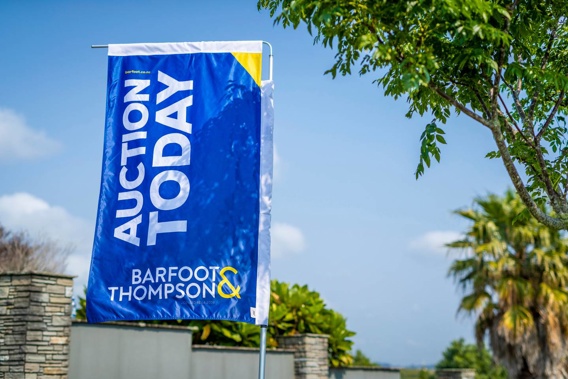
Last month was the slowest February for Auckland house sales in a quarter of a century for a major agency.
As Aucklanders brace to pay $900/fortnight more on mortgages and mortgage defaults rise, the state of the city’s real estate sales market has been revealed by Barfoot & Thompson.
“Two months of the most intense and extreme weather Auckland has ever experienced hobbled the property market during February, leading to the slowest month’s trading in a February for at least a quarter of a century,” the agency said.
Peter Thompson, managing director, said only 410 properties were sold in February.
“The state of emergency, constant gales, disruption to movement and the public’s preoccupation with safety made trading conditions during February the most challenging anyone in the business can recall.
“The only month in the past 20 years when we have sold less was in April 2020, when virtually all commercial activity was suppressed as a result of Covid,” Thompson said.
Average prices dropped 1.2 per cent from January to $1,101,980, and down 8.9 per cent annually.
”Given how little trading activity was possible, not too much should be read into February’s sales activity and prices,” Thompson warned.
Unsold inventories are swelling. The agency now has a huge 4873 properties on its books, the highest in a decade.
“Prices continued to ease against where they were at this time last year, but vendors remained firm in what they considered a fair market price. New listings reaching the market remained strong, and at 1309 for the month were 21.5 percent higher than in February last year,” Thompson said.
/cloudfront-ap-southeast-2.images.arcpublishing.com/nzme/RF2YYUHYGFNZP5ARXYNUJCXEEY.jpg)
Peter Thompson has announced the February sales data. Photo / supplied
This week, economists at Westpac said: “If you live in Auckland, where house prices tend to be higher, that increase in interest costs will be around $900 per fortnight.”
Rising rates will constrain household spending and nationally, people will pay $530/fortnight more.
“Suppose you purchased an average-priced house in 2021 with an 80 per cent mortgage fixed for two years. Compared to what you were paying in 2021, your minimum fortnightly payments in most parts of the country are set to rise by around $530 per fortnight when you go to re-fix your mortgage,” the economists said.
But it’s $900/fortnight for Aucklanders.
“On average, borrowers in this example would need to spend around 12 per cent more of their disposable income to meet the minimum repayments on their mortgage. For many families, that would more than offset the growth in their incomes over the past two years,” the economists wrote.
Late mortgage payments are also up.
Mortgage arrears rose sharply in January to a near three-year high as households were squeezed by rising costs and interest rates, data from credit bureau Centrix showed.
The number of households behind on mortgage repayments in January was up 22 per cent year-on-year to approximately 18,400 - the highest since April 2020.
And it looks likely to get worse before it gets better as more homeowners roll off fixed home loans and on to higher interest rates.
“Looking at the latest data, it appears mortgage arrears have increased alongside rising interest rates due to the Reserve Bank’s official cash rate [OCR] decisions,” Centrix managing director Keith McLaughlin said this week.
“Regardless of who you ask, the general consensus is the OCR will continue to climb into at least mid-April, resulting in further interest rate hikes and potentially further climbs in mortgage arrears.”
Take your Radio, Podcasts and Music with you









